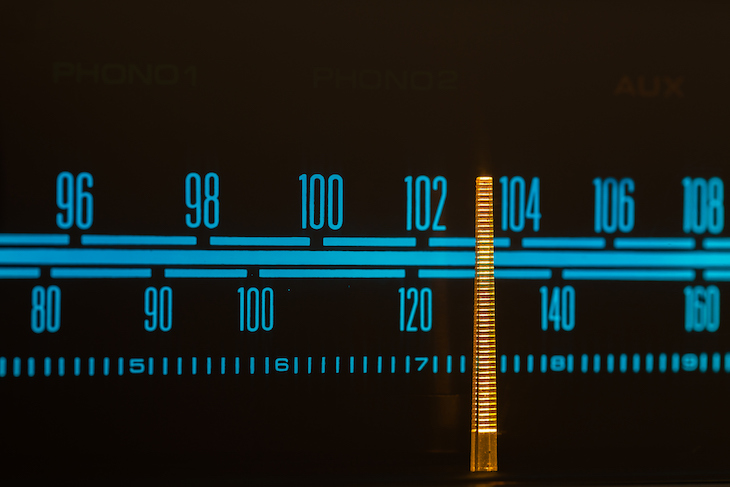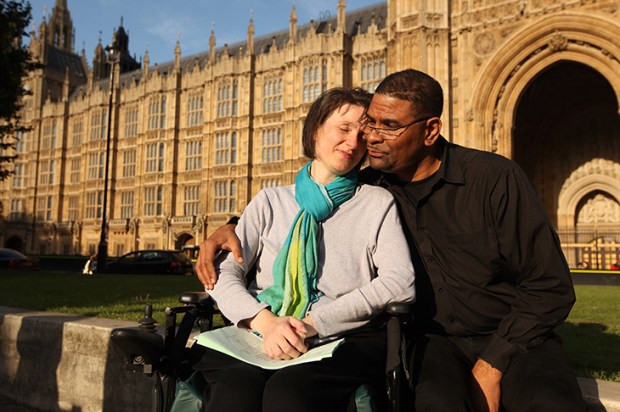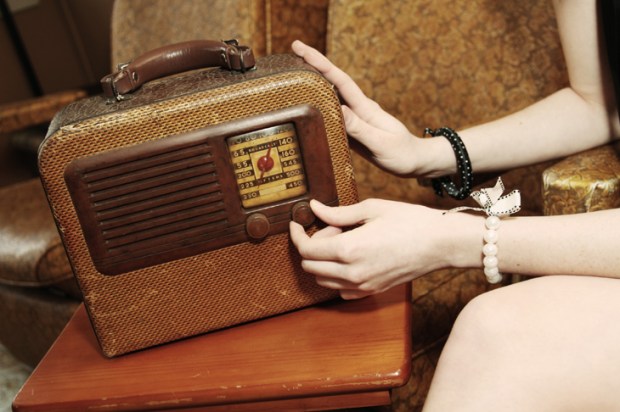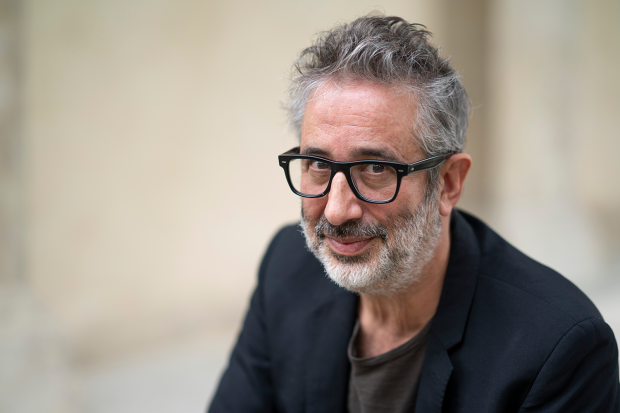As the ravens circle around Broadcasting House in London’s West End, presaging difficult times ahead for BBC Radio, with less money to play with at a time of increased competition from its commercial rivals, a very different kind of listening experience was on offer last week in an upstairs room above a café in Canterbury. The UK International Radio Drama Festival is in its fifth year, gathering dramas from across Europe and beyond for a week of intense and unusual audio, transmitted in 18 different languages. Thirty or so of us sat around as the plays were broadcast through a number of old-fashioned radio sets, listening to monologues, musicals, character studies, experimental sound art in Czech, German, Farsi, Spanish, Slovene, Serbian, Romanian, Russian and more.
How on earth can you follow what’s going on when you can’t possibly know what anyone is saying? Remarkably well: each play has an English translation which you can read word-for-word as the drama unfolds. But in any case the fact that you can’t understand what’s being said hardly seems to matter. It’s the rhythm of the words that draws you in and keeps your interest, the pacing, the tone, the cadences, and whether there’s enough variety of voices between all the actors (crucial to the success of any play). It’s also down to the sound world created by the technicians in the studio: is it hollow or warm, aurally offputting or compelling?
To find yourself in a roomful of strangers listening to a play in a language so foreign you can’t even recognise the individual words is a weirdly engaging experience. If the play’s any good — the script, the acting and the recording — it will reach out and draw you in, holding your attention. Some were interminable, like an evening of Chinese opera for the uninitiated. But for the most part being at the festival is like travelling elsewhere without having to undergo the hassle of airport security.
Very few plays in competition at the festival were standard Radio 4 fare: two-handed domestic scenes, crime capers or classic adaptations. Radio drama from central and eastern Europe tends to be much more experimental, less character-driven, less dependent on narrative drive. Radio Belgrade’s submission in Serbian, Muzika Trazi Usi/Music Seeks Ears (directed by Andjelka Nikolic), was fantastical but gradually revealed layers of meaning: houses that grow massive ears, characters for whom listening has been something to fear, and an empty story in search of an experience to write about.
The plays can still be heard online (with translated scripts) on the festival’s website (radiodramafestival.org.uk) and voting is still open for the audience prize. First prize chosen by the jury of professional radio-makers was awarded to an atmospheric and deft telling of the true story of Jemmy Button, who was brought back to Europe from the island of Tierra del Fuego on the HMS Beagle in 1830. Almost 30 years later, Button was chief suspect for the savage murder of a group of Christian missionaries on the island to which Button had returned after only a couple of years in the West, readopting the language and lifestyle of his native Yamana people.
Die Toten von Feuerland/The Dead of Tierra del Fuego (devised and directed by Ulrike Haage and Andreas Ammer) had a haunting soundscape, evoking the strangeness of the encounter between the English sailors and the naked islanders, the mutual incomprehension and suspicion. Part drama, part documentary history (with clips from phonograph recordings of the islanders made in the 1920s) this was mostly in German with some English passages. Strangely it lives on in the mind as if it had all been in English so vivid was its imagery.
At a post-listening session with specially invited guest, Gillian Reynolds, queen bee among radio critics, one of the German delegates to the festival wondered whether the BBC was selling off its high-tech recording studios, just as has happened in Cologne. Yes, said Reynolds. The historic Maida Vale, home to the radiophonic workshop, is up for sale. Perhaps the prevailing message of the festival was not so much one of celebration but of an urgent need for more European collaboration to save the particular art form that is radio drama.
Over on our own Radio 4, the ambitious 11-hour adaptation of Arnold Bennett’s Five Towns series of novels has just ended (masterminded by Marion Nancarrow and Gemma Jenkins). China Towns tells of the industrial revolution in the Midlands, the ruthlessness of those who made money, the hardship of those who made that possible, and especially the women who lost out but who were also the backbone of those hard-working communities.
The scripts (by Shaun McKenna and Lin Coghlan) were smart and fast-paced, honing in on the plight of the women, the interplay between greed and religious conscience, the fragility of worldly success. And the acting gave us a host of vivid characters — Darius Clayhanger (Tim McInnerny), Anna Tellwright (Kate O’Flynn), Hilda Lessways (Lucy Doyle) and Aunty Hamps (Carolyn Pickles). I kept missing episodes but it didn’t seem to matter; each time the story unfolded with such clarity and the atmosphere drew me in. Would the imperious Clayhanger get his comeuppance, Hilda survive, and the Prices keep hold of their factory? Catch it before it disappears.
Got something to add? Join the discussion and comment below.
Get 10 issues for just $10
Subscribe to The Spectator Australia today for the next 10 magazine issues, plus full online access, for just $10.
You might disagree with half of it, but you’ll enjoy reading all of it. Try your first month for free, then just $2 a week for the remainder of your first year.



![British poet Salena Godden presenter of Mrs Death Misses Death on Radio 4. [Photo: Roberto Ricciuti / Getty Images]](https://www.spectator.com.au/wp-content/uploads/2018/12/Radio.jpg?w=620)










Comments
Don't miss out
Join the conversation with other Spectator Australia readers. Subscribe to leave a comment.
SUBSCRIBEAlready a subscriber? Log in